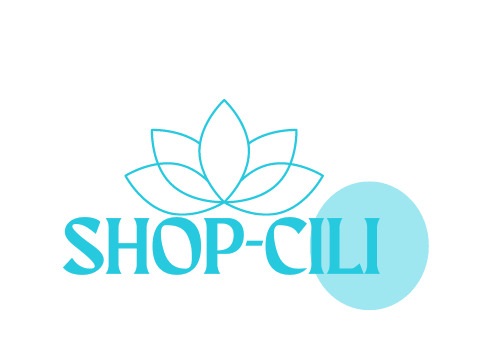AI is like fire; it can cook your dinner or burn your house down.
– Lee Pomerantz, 2024
This striking metaphor captures both the potential and peril of artificial intelligence (AI) as it becomes deeply integrated into human life. While AI promises to revolutionize problem-solving, creativity and decision-making, it also raises profound questions about identity, purpose and human connection. When combined with transhumanist ideals that seek to enhance human capabilities beyond natural limits, the essence of humanity comes into question.
Amid this shift, spirituality—the pursuit of purpose, interconnectedness, and self-awareness—remains one of the few uniquely human experiences. Here in this piece, I’ll more deeply explore the relationship between AI, transhumanism and spirituality. I’ll consider how technological advancements are reshaping human identity, the role of spiritual growth in this transformation, and how individuals and communities can sustain mindful presence in an AI-dominated future.
The erosion of human identity
AI and transhumanism aim to enhance human capabilities, but they also challenge what it means to be human. From AI-driven automation to “ mind uploading,” technology’s ability to replicate human qualities such as empathy, emotional intelligence and creativity poses existential questions (Schneider, 2014).
One notable shift is the redefinition of identity. If a person’s memories, thoughts and consciousness can be uploaded to a digital system, as suggested by the concept of “digital immortality,” does that person remain the same (Cave, 2020; DAZED, 2023)?
Projects like Neuralink aim to achieve this vision by exploring “whole brain emulation,” which maps human neural pathways into digital form (Serruya, 2017). The goal of such technologies is to achieve immortality by preserving consciousness in a virtual space (Cave, 2020).
While this offers the possibility of “eternal life,” it also raises ethical questions. Is a digital copy of a person truly “them,” or is it a mere replication of their behaviours and thoughts?
The philosophical consequences of such advancements are profound. By reducing human consciousness to something that can be “stored” or “replicated,” these technologies could devalue the notion of the soul and undermine the spiritual essence of human existence (Schneider, 2014).
According to Vivoda (2023), the pursuit of digital immortality could erode intrinsic human values, such as empathy, compassion and community, as people shift from lived experience to virtual preservation. Furthermore, when AI systems begin to make decisions traditionally reserved for human reflection—such as moral and ethical judgments—it becomes harder to define where the human ends and the machine begins (O’Neil, 2016).
This erosion of identity isn’t limited to extreme cases of mind-uploading. AI already encroaches on human roles in daily life. As AI assistants like Replika and Woebot gain popularity for emotional support, people are increasingly engaging with machines instead of human companions.
According to Turkle (2017), this reliance on AI-driven companionship reshapes human intimacy, as people begin to view AI as “friends” or “confidants” rather than seeing emotional support as a uniquely human experience. Over time, people may develop attachments to these AI companions, which raises concerns about social isolation and the erosion of authentic interpersonal relationships.
Without careful reflection, this shift may lead to a redefinition of what it means to “connect” with another being.
The role and value of spirituality
While technological advances challenge human identity, they also highlight the enduring value of spirituality. As AI and transhumanism push human abilities beyond natural limits, spirituality offers a grounding force that can help people navigate these transformations.
Traditionally, spirituality is linked to self-awareness, purpose, and interconnectedness—aspects that can’t be fully replicated by machines (LaTorra, 2005). As technology redefines work, relationships and even mortality, spirituality remains an essential space for reflection, growth and emotional well-being.
The pursuit of self-awareness has always been a fundamental aspect of spiritual growth, and it becomes even more vital in a world where technology blurs human boundaries. In traditional practices like meditation, prayer or mindfulness, individuals seek to understand their inner world and find meaning in life’s challenges. These practices have a counterpart in modern technology, where apps like Headspace and Calm promote mindfulness through digital platforms. But while these tools support spiritual reflection, they also risk commercializing it.
As Youvan (2024) warns, the “commodification of spirituality” through subscription-based apps and wellness technology could reduce profound spiritual experiences to shallow consumer products.
In this context, spirituality plays a critical role as a reminder of human authenticity. Unlike AI, which operates on pre-programmed algorithms, human consciousness is shaped by lived experience, reflection, and growth. The essence of spirituality—being present in the moment—remains uniquely human.
Transhumanist ideals may promise “augmented consciousness” through brain-computer interfaces, but spiritual presence requires no hardware (Bernal et al., 2021). For this reason, spiritual growth may become even more significant in an AI-dominated world, offering people a way to reclaim their humanity amid rapid change.
Purpose and connection via spirituality
Amid AI-driven changes, spirituality offers a path for reclaiming purpose. In a world where AI handles creativity, decision-making and even moral judgments, the human role may feel diminished.
Many people already face an identity crisis due to job displacement caused by AI automation (Brynjolfsson & McAfee, 2014). As machines take on human tasks, people may feel purposeless, leading to a decline in mental well-being. However, spirituality can restore this sense of purpose by encouraging individuals to reflect on their values and explore their deeper connections with others (Youvan, 2024).
Community also plays a significant role in this process. Spirituality is often experienced in collective settings, such as religious communities, cultural groups or support networks. By fostering shared experiences, these communities strengthen human connections, even in a world shaped by AI.
Digital tools like online faith-based forums and mindfulness discussion boards create new spaces for community-driven spirituality. As Wellman (2001) notes, “personalized networking ” enabled by digital tools allows people to maintain spiritual connections despite physical distance. This shift can be beneficial, but it also risks fragmenting communal bonds if people prioritize individual engagement over collective rituals.
To address this, The Mindful Word could play a pivotal role in promoting collective spiritual practices. The magazine could provide virtual forums, interfaith discussions and community-driven workshops where people reflect on the spiritual implications of AI. By emphasizing shared spiritual practices, The Mindful Word can encourage readers to view technology as a tool for unity, not division.
4 solutions for preserving spirituality
To ensure that humanity maintains its spiritual well-being amid technological change, society must adopt strategies that prioritize reflection, equity and ethical governance. Here are four key approaches:
Promote mindful technology use
People should be encouraged to engage with technology intentionally, rather than passively accepting its influence. Workshops, digital detoxes and educational programs can help users cultivate mindful habits. Apps promoting mindful technology use, such as Freedom and Stay Focused, help users reduce distractions and foster a deeper sense of presence.
Strengthen spiritual education
Schools, workplaces and communities should integrate discussions about technology’s impact on spirituality. By exploring the ethical dilemmas posed by AI, students and employees can reflect on their values and sense of purpose. Mindfulness education can be incorporated into school curriculums, encouraging students to consider the human qualities that machines can’t replicate, such as compassion and empathy (NCEATALK, 2024).
Foster inclusive communities
Spirituality thrives in collective settings. Community support networks, interfaith dialogues and shared rituals offer people a sense of purpose (World Council of Churches, 2023). Initiatives like the World Council of Churches’ (2023) interfaith dialogues on AI can be replicated on a local scale to bring people together and discuss technology’s impact on spirituality.
Advocate for ethical governance of AI
AI technologies must be developed with human dignity at the forefront. Organizations like UNESCO and the European Union have proposed ethical frameworks for AI governance. The Mindful Word can highlight these initiatives, emphasizing the importance of transparency, accountability and fairness (UNESCO, 2023; European Commission, n.d.). By advocating for human-centered AI, society can ensure that technology serves humanity’s highest values.
Spirituality is our anchor
As AI and transhumanism transform society, spirituality remains a vital anchor for human purpose, identity and connection. While technology reshapes the world, it can’t replace the human quest for self-awareness, empathy and interconnectedness. By fostering mindful presence, humanity can navigate the technological future with intention and clarity.
The Mindful Word is uniquely positioned to lead this effort by promoting reflection, dialogue and ethical consciousness. As technological progress continues, let us ensure that humanity’s spiritual essence is not left behind. Instead, by integrating mindfulness with technological development, we can shape a future where machines support, rather than overshadow, the human spirit.
Have you ever had an experience involving artificial intelligence that had a positive effect on your spiritual health? We’d love to hear your story in the Comments section below.
by Jiancheng Liu
images: Depositphotos

